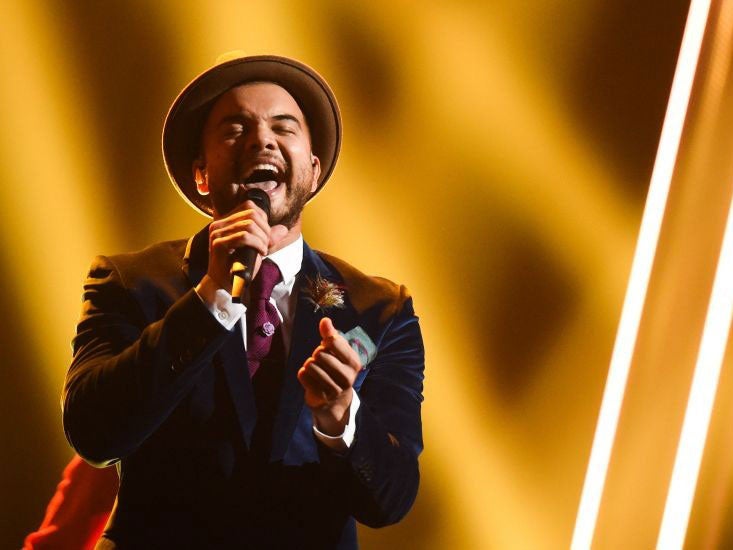Eurovision 2015: Why was Australia allowed to take part in the song contest?
Guy Sebastian said he was excited to be representing his country on its debut

Your support helps us to tell the story
From reproductive rights to climate change to Big Tech, The Independent is on the ground when the story is developing. Whether it's investigating the financials of Elon Musk's pro-Trump PAC or producing our latest documentary, 'The A Word', which shines a light on the American women fighting for reproductive rights, we know how important it is to parse out the facts from the messaging.
At such a critical moment in US history, we need reporters on the ground. Your donation allows us to keep sending journalists to speak to both sides of the story.
The Independent is trusted by Americans across the entire political spectrum. And unlike many other quality news outlets, we choose not to lock Americans out of our reporting and analysis with paywalls. We believe quality journalism should be available to everyone, paid for by those who can afford it.
Your support makes all the difference.Australia will compete in Eurovision tonight for the first time in history, despite being more than 8,000 miles away from Europe.
Guy Sebastian is already a bookies’ favourite to win the annual contest with his song “Tonight Again”.
He will be among are 27 finalists taking the stage in Vienna, starting with Slovenia and closing with Italy.
But why is Australia even taking part?
To mark the competition’s 60th anniversary, Eurovision chose the theme of “building bridges”.
Organisers the European Broadcasting Union (EBU) and the Austrian host station said they invited Australia to compete, bringing the number of countries participating to 40 in total.
The contest’s governing body, the Reference Group, accepted the proposal that also allowed Australia to vote in the final stages and bring in televoting Down Under.
In a statement, executive supervisor Jon Ola Sand said: “It’s a daring and at the same time incredibly exciting move. It is our way of saying; let’s celebrate this party together!”
Australia has been classed as a “special guest” for 2015 but will be automatically allowed to return if it wins and organisers have not ruled out extending the invite permanently.
Why is a non-European country allowed to take part?
Australian network SBS, which has broadcast Eurovision for more than 30 years, is also a member of the EBU.
The Sydney Morning Herald reports that the broadcaster has paid a “hefty” participation fee like other participants, on top of its broadcasting fee, to ensure that Australia’s entrant goes to the final round.
The UK is among several other countries including France, Germany, Italy and Spain who are given an automatic place in the coveted final.
They are known as the Big Five and have been automatically qualifying since 2000 as the largest financial contributors to the EBU.
In 2010, the BBC reportedly paid £283,190 to screen Eurovision, on top of its own production costs.
Do the Australians care about Eurovision?
SBS said three million people watched its coverage of last year’s competition.
Michael Ebeid, the managing director, said: “We are very excited to have secured this historic opportunity for Australia to be represented on the world’s biggest stage at the 60th anniversary of the Eurovision Song Contest and are honoured that the European Broadcasting Union has supported us to achieve this ambition.
“SBS has been broadcasting Eurovision for over 30 years and we have seen how Australians’ love of the song contest has grown during those years.”
Is it the first time a non-European country has taken part?
No. Israel has been a regular competitor since 1973 and won three times, allowed because the Israel Broadcasting Authority is a member of the governing EBU.
Azerbaijan is also taking part and Morocco has in the past. Tunisia and Lebanon are among the other countries considered for an invite.
Join our commenting forum
Join thought-provoking conversations, follow other Independent readers and see their replies
Comments